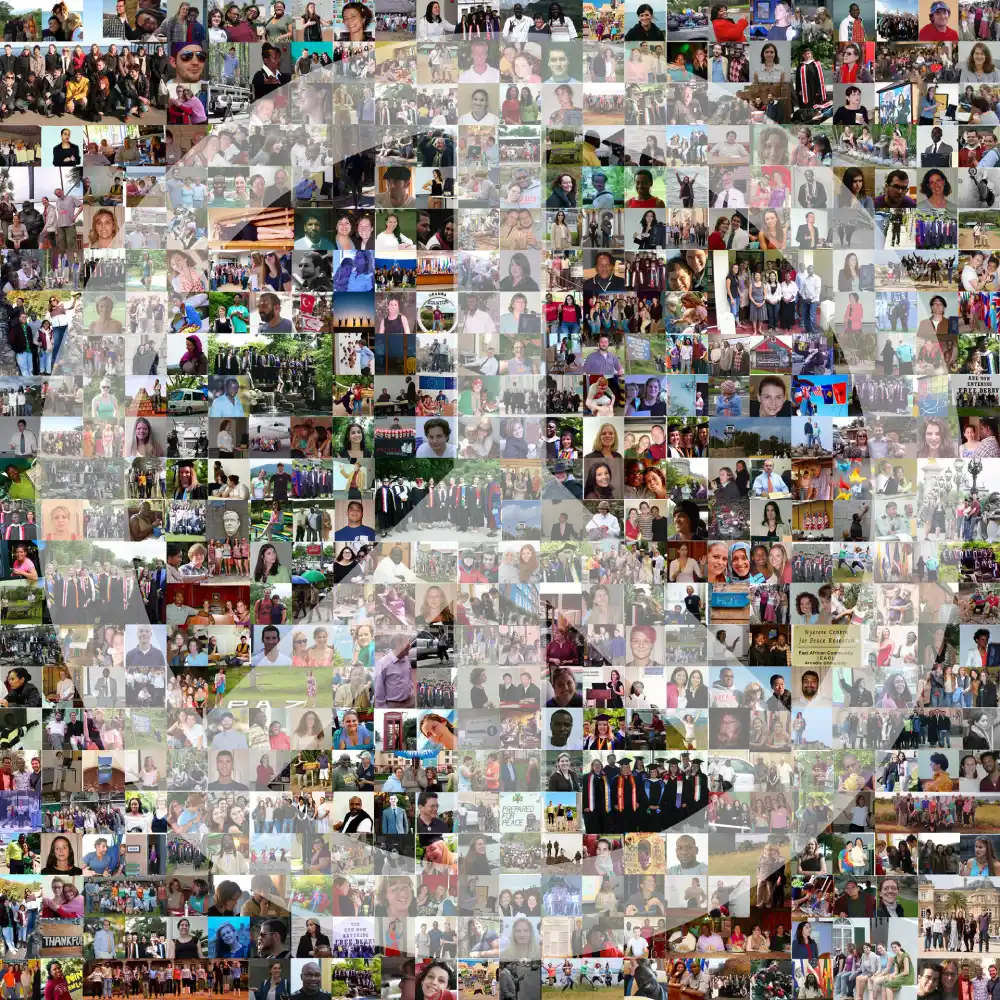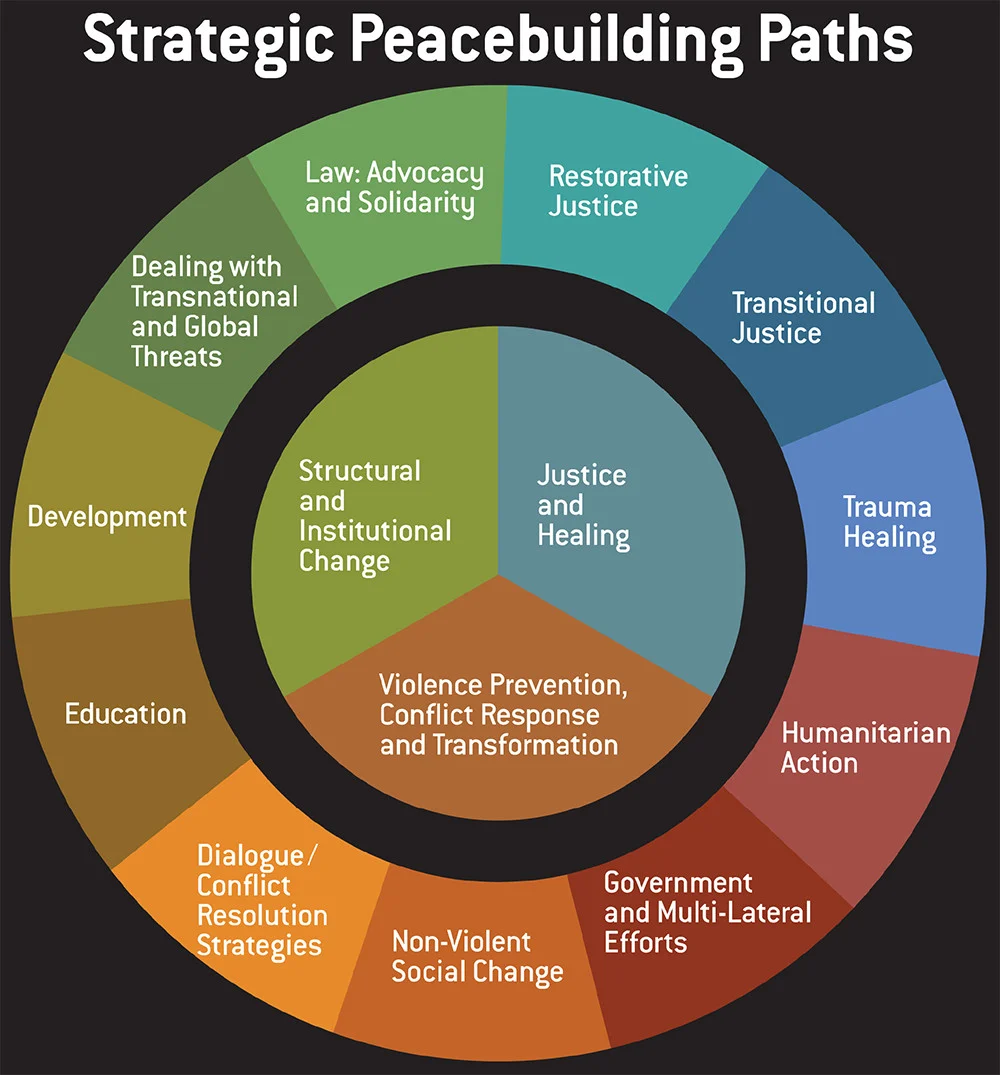Conflict Resolution Careers
A Master’s Degree in International Peace in Conflict Resolution makes you competitive for jobs in the public, private, and nonprofit sectors. According to the U.S. Department of Labor, peace and conflict resolution-related employment is growing, and those with IPCR degrees are also well-suited for careers in education, business, government, development, or health fields.
Alumni Employers
More than half of our alumni are employed in nongovernmental organizations, while others work in government, education-related fields, or the private sector. IPCR faculty, staff, and alumni work together to help you successfully navigate professional placement and career development.

What Can I Do with a Conflict Resolution Degree?
Conflict Resolution Careers
A Master’s degree in conflict resolution will help make you competitive in jobs in every sector: public, private, or not-for profit. “Over the past two decades, the field of international peace and conflict resolution has grown substantially” with increased funding for peace and conflict resolution work by various U.S. government agencies, foundations, and international NGOs (ACT 2005). All of these jobs are growing at an average or faster than average rate according to the U.S. Department of Labor.
Most IPCR degreed professionals will not necessarily land jobs that are “conflict resolution” jobs, but rather jobs in education, business, government, development, or health fields doing conflict resolution work. More than 50% of our alumni work in NGO’s, another 20% in government, 20% in education related fields, and the remaining 10% in the private sector. IPCR faculty, staff and alum work together to help graduates successfully navigate professional placement and development.
Strategic Peacebuilding Paths
To give you a sense of the entirety of the field of peacebuilding, JP Lederach and Kate Mansfield created the graphic at right. It illustrates the components and subcomponents of the field of peacebuilding and how they relate to each other.
For IPCR students and professionals, this image shows the three core areas of the field:
- Efforts to prevent, respond to, and transform violent conflict;
- Efforts to promote justice and healing; and
- Efforts to promote structural and institutional change.
And the outer circle shows the specific career paths that correspond to those core areas. Students in IPCR can pursue careers across a wide spectrum of passions including Restorative Justice, Transitional Justice, Humanitarian Action, Government and Multilateral Efforts, Nonviolent Social Change, Dialogue / Conflict Resolution Strategies, Education, Development, Dealing with Transnational and Global Threats, and Law: Advocacy and Solidarity. Learn more about these areas by viewing the listings below:

Restorative Justice
- Addressing historical and ongoing harms against indigenous people
- Community-based restorative justice
- National restoration processes (addressing historical structural harm)
- Prison system reform
Transitional Justice
- International Criminal Court or tribunals
- Justice to address mass atrocity and human rights
- National and local justice processes
- Trauma Healing (in particular the Counseling and IPCR dual degree program)
- Child soldier reintegration
- Collective community healing
- Refugee resettlement and services
- Trauma therapy and counseling/social support
- Victim support and reparations
Humanitarian Action
- Crisis health care and social services
- Human rights protection and monitoring
- Humanitarian advocacy and law
- Humanitarian emergency response
- Information management for relief operations
- Public health work related to structural and physical violence
Government and Multilateral Efforts
- Civil-military relations
- Demobilization and disarmament
- Diplomacy
- Intergovernmental organizations
- Peace processes
- Policy analysis and implementation
- Post-conflict reconstruction
Nonviolent Social Change
- Active nonviolence
- Community organizing, mobilization or social action/movements
- Issue-based educational campaigns
- Media/journalism/writing
- Minority and marginalized empowerment and civil rights advocacy
Dialogue / Conflict Resolution Strategies
- Arts-based approaches to social transformation
- Conflict monitoring and early warning
- Cross-cultural contact programs
- Inter-faith, inter-ethnic, and intercultural dialogue
- Language interpreting or teaching
- Local peacebuilding institutes and training
- Mediation or dispute settlement
- Reconciliation
- Violence prevention or resolution
Education
- Adult and civic education
- Applying gender lenses to peace and conflict
- Building peaceable schools
- Educational reform initiatives
- Investigating cultural and structural violence
- Leadership development and training among historically disadvantaged groups
- Service learning
- University-based peace studies/ peace education/ peace research
- Vocational schools
Development
- Economic development
- Gender equality work
- Housing and urban development/redevelopment
- Human and social development
- Local and international development
- Microfinance and small business development
- Strengthening democratic institutions and participation
- Sustainable development, sustainable agriculture
Dealing with Transnational and Global Threats
- Corruption and organized crime
- Cultural and structural violence
- Economic and social injustice
- Environmental degradation and climate change
- Gender exclusion and gender-based violence
- Genocide and mass violence
- Human rights violations
- Human trafficking
- Imperial domination
- Nuclear and small arms proliferation
- Poverty, hunger and homelessness
- Terrorism
- War
Law: Advocacy and Solidarity
- Family law and domestic violence protection
- Human rights law
- Immigration law, immigrant services and education
- Indigenous cultural preservation, solidarity and rights
- International law and policy work
- Labor and employment law/protection
- Land issues
- Migrant justice, migration and human trafficking
- Work with youth: Child protection, rights, services


